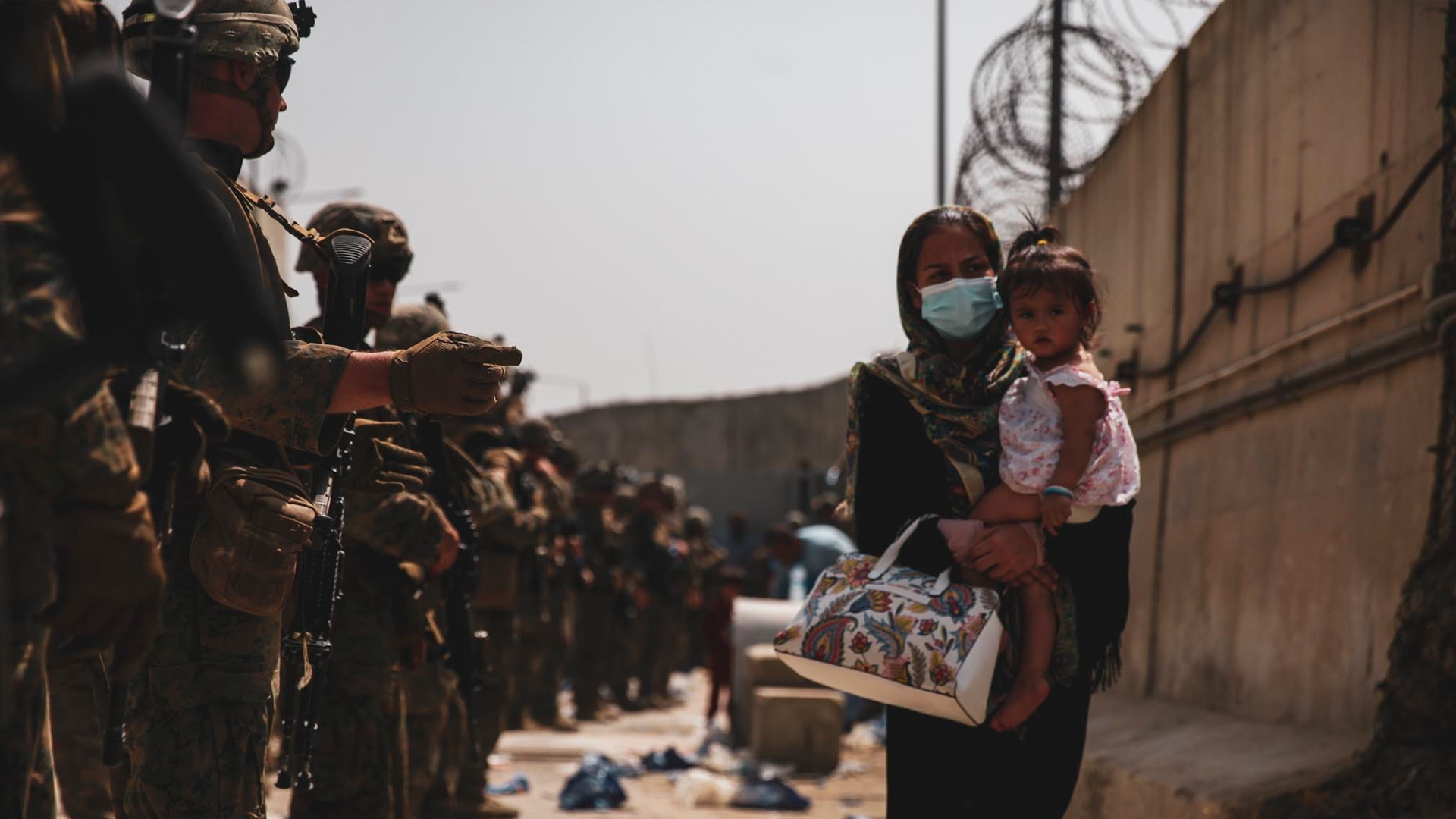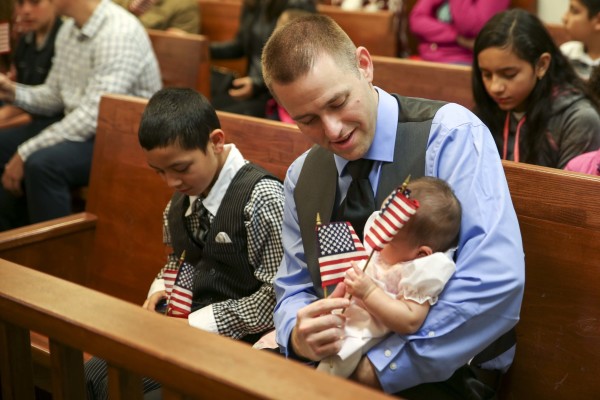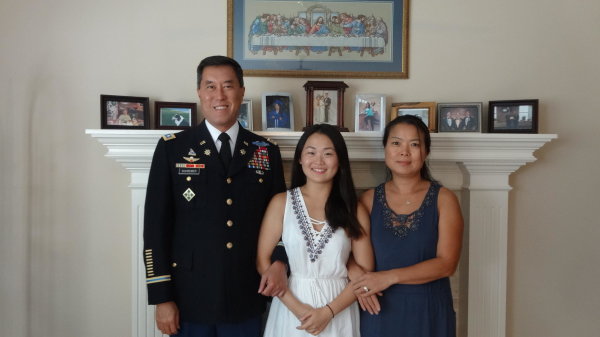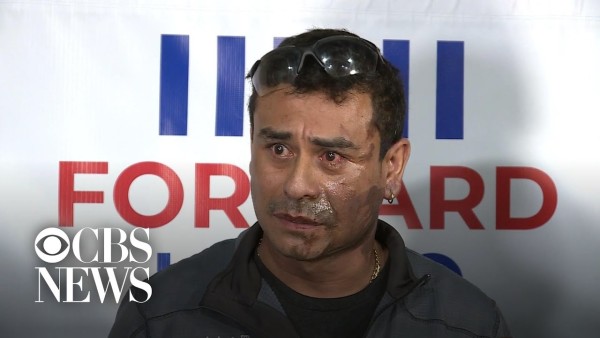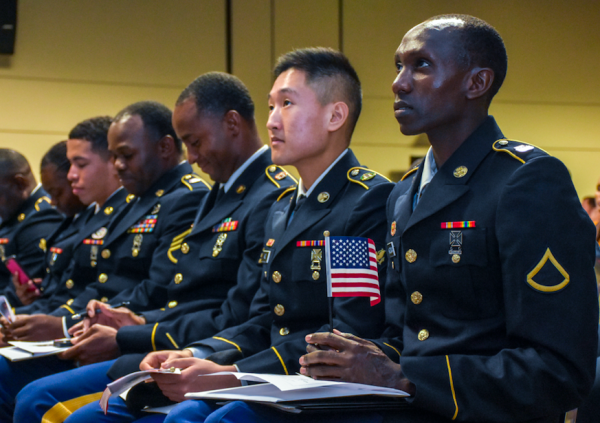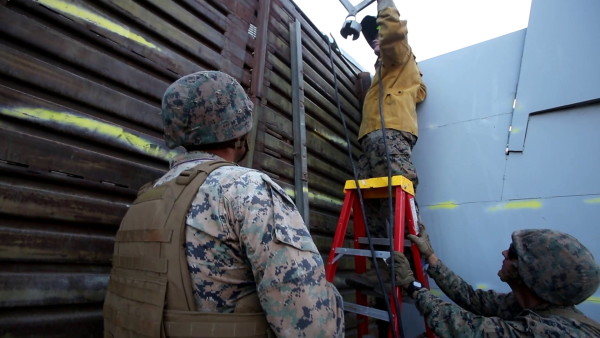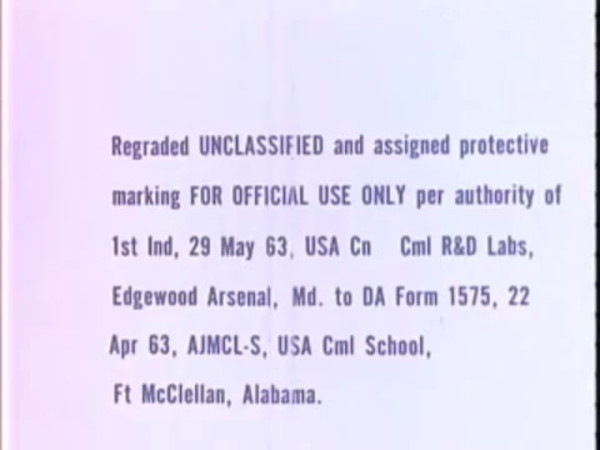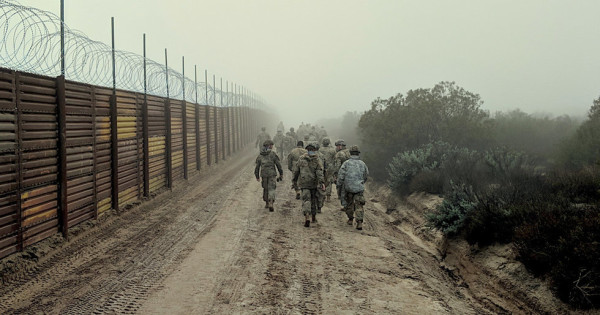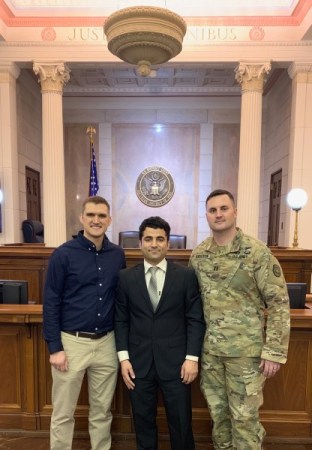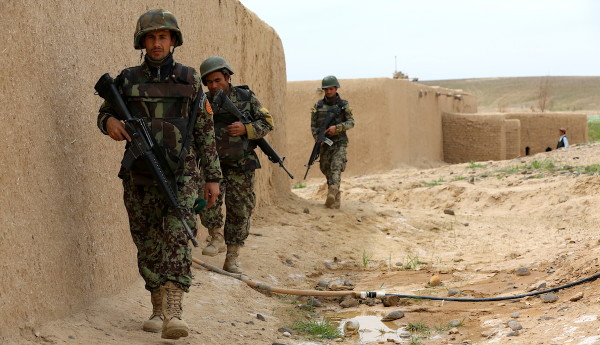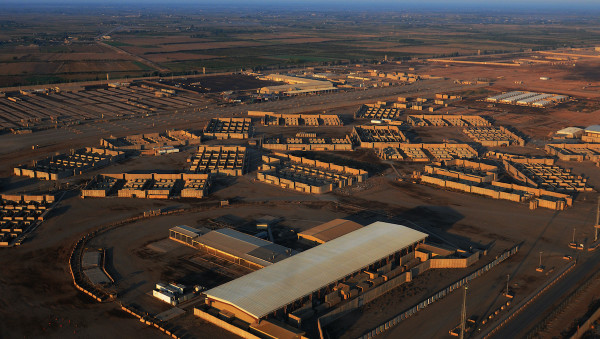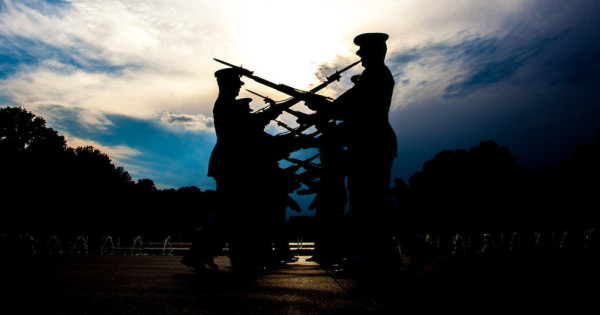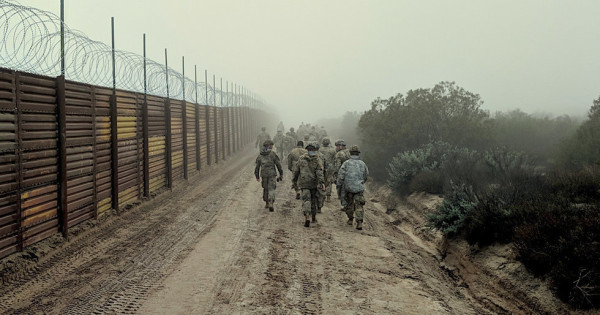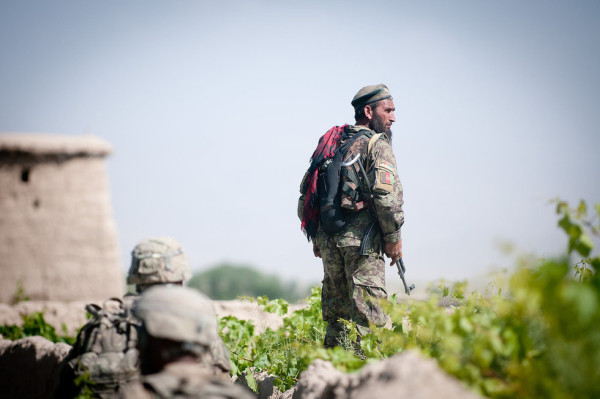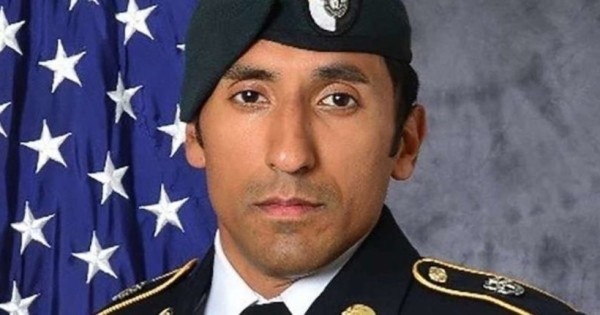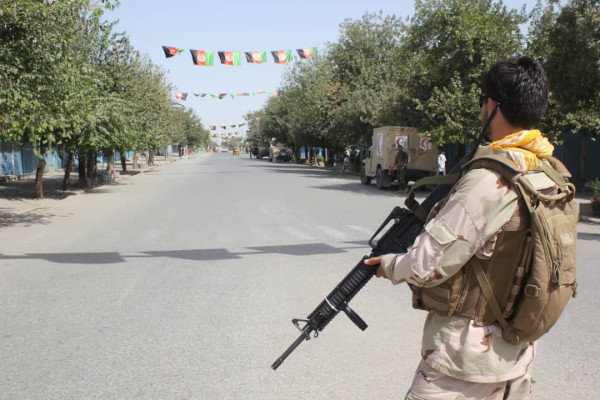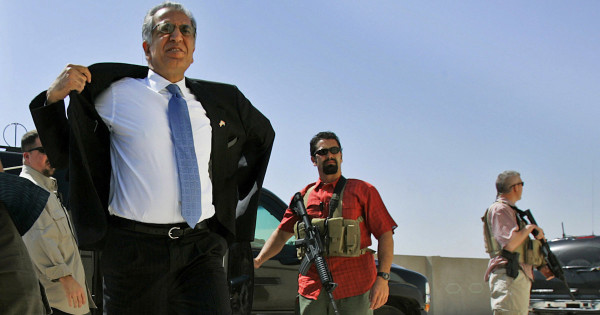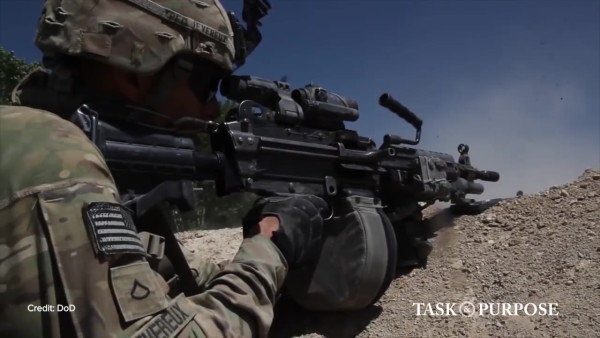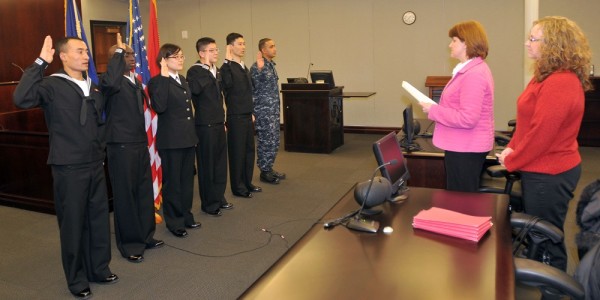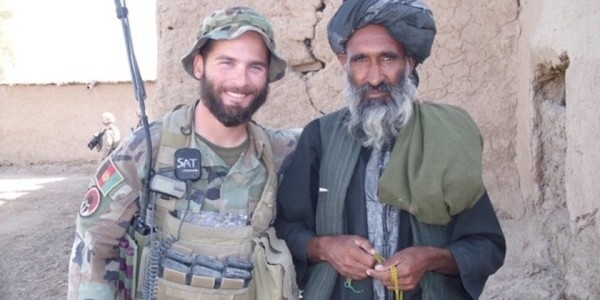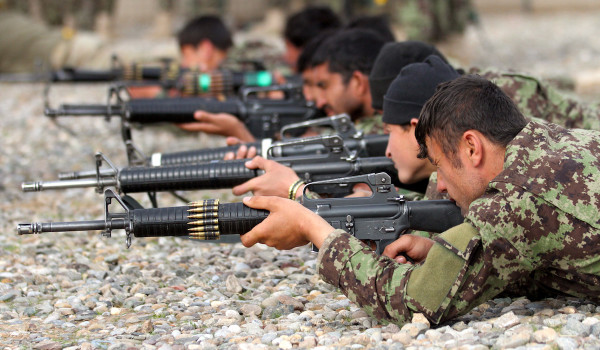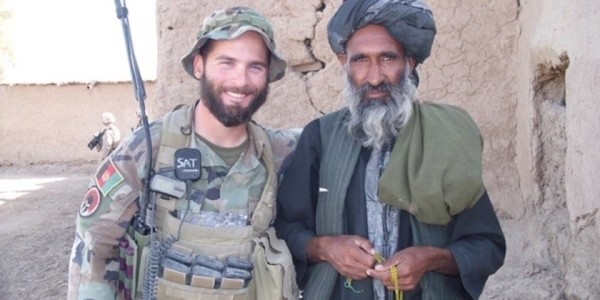If you get your news from Fox News’ Laura Ingraham, you may have a different perception of what’s happening with vulnerable Afghans who are resettling in the wake of the Taliban’s takeover.
“Is it really our responsibility to welcome thousands of potentially unvetted refugees from Afghanistan?” Ingraham said Monday on her show, The Ingraham Angle. “All day we’ve heard phrases like ‘We promised them.’ Well, who did? Did you?”
There are several things worth mentioning about Ingraham’s remarks, but we’ll start with the idea that “potentially thousands” of “unvetted” refugees are coming to the United States, which she said could “could end up being a disastrous situation.”
Those who are coming directly to the U.S. — Afghan nationals who “have completed the rigorous security vetting process” to receive a Special Immigrant Visa (SIV), according to State Department spokesman Ned Price — are anything but unvetted. Depending on their situations, they have likely already been through some extensive vetting. Price explained in a briefing on Thursday that U.S. citizens and Afghans who have gone through the SIV process are coming to the U.S. (thousands of which have already arrived).

Those who are “not at a particular stage” of the SIV process, and vulnerable Afghans who are not in the SIV process at all, are being evacuated to third-party countries, Price said, where they will complete the rest of their application process for a SIV or other designation under the U.S. Refugees Admissions Program. The P-2 designation, for example, applies to Afghans who worked with U.S. contractors, media, or government programs, but are not eligible for a SIV.
A U.S. official familiar with the planning confirmed to Task & Purpose that Afghans not eligible for the SIV program will go through processing facilities being stood up in Bahrain, Qatar, and Germany, where they will go through vetting across multiple government agencies and the National Counterterrorism Center. They’ll also go through biometric screening, the official said.
And for many Afghans, this isn’t the first time they’ve gone through a background screening. Those who worked as interpreters for the U.S. military and other NATO forces, for example, are “vetted by the U.S. military before they are ever approved to venture out on patrols with American troops,” as NBC News reported.
Betsy Fisher, the director of strategy at the International Refugee Assistance Project, explained that the vast majority of people who worked with the U.S. government “had to go through regular checks on their background,” which included polygraph tests and “regular scans” of their phones against databases of people who were suspected of connections with extremists.
https://twitter.com/JimLaPorta/status/1428170767036989441
Still, those Afghans are going through yet another extensive screening process to receive a SIV. The 14-step process can take years to complete; one Afghan interpreter who spoke with Task & Purpose waited four years from the time he submitted his application to the time he received a response, only to be denied on a technicality.
Afghans applying for a Special Immigrant Visa must submit information from their employer, a letter of recommendation from their “direct U.S. citizen supervisor,” and a statement outlining the threats they face as a result of their employment with America, according to a Congressional Research Service report outlining the SIV program. If that paperwork is approved, they move on to file a petition with the U.S. Citizenship and Immigration Services.
Interpreters who worked with the U.S. military must also provide evidence of that employment, a letter of recommendation from either the Chief of Mission — the person in charge of a U.S. diplomatic mission abroad — or a general or flag officer in the military unit they served with, as well as proof that they received a background check and screening by the U.S. military or chief of mission.
When USCIS has approved the application, it’s then sent to the Department of State’s National Visa Center, which then tells the applicant to begin gathering required paperwork including “copies of passport biodata pages, birth certificates, and civil documents; police certificate, if applicable; and a refugee benefits election form,” the report says.
After all of that paperwork is reviewed, the National Visa Center schedules in-person visa interviews for the applicant and any family members who also applied at a U.S. embassy or consulate.

A pause in interviews is one of the causes of the huge backlog the government had in SIV applications; in-person interviews were suspended in March 2020 because of the novel coronavirus (COVID-19), according to Axios. Those interviews were resumed shortly after President Joe Biden took office.
During the interview, the applicants’ fingerprints are taken and afterward, their cases go through “administrative processing, which may include requesting additional documentation, conducting additional interviews, and interagency security checks,” the CRS report said.
While there are differences between someone applying for refugee status, and someone applying for a SIV, there is also some overlap. SIV applications don’t “require a showing of persecution,” according to the report, but special immigrant programs for Afghans who worked with the U.S. military define eligible applicants as someone who “has experienced or is experiencing an ongoing serious threat as a consequence” of their work with the U.S.” And in Afghanistan, the threat to interpreters and their family members from militants is all too common, since they have long been viewed by the Taliban as traitors and collaborators for a “puppet” government in Kabul.
Aside from the background check to receive a special immigrant visa, the situation on the ground in Afghanistan does not make it easy for Afghans to get to the airport in Kabul to be evacuated. Report after report has surfaced that people are being forced to attempt to pass through Taliban checkpoints outside the airport, with seemingly little assistance from the U.S.
And as for Ingraham’s comments asking who “promised them” entry into the U.S.: We, the American people did, Fisher said.
“The people who made promises were the U.S. government employees, and the U.S. citizen journalists, and the U.S. citizen humanitarians, who served on the ground and who became friends, and built meaningful relationships with people who were there, and who understood U.S. government policy to be that we would help people who faced risk because of their work for the U.S. government,” Fisher said.
“That’s who made promises … and it is in our interest as humans to protect those people.”
Paul Szoldra contributed reporting.
More great stories on Task & Purpose
- Afghans are literally clinging to the sides of U.S. military aircraft to escape from the Taliban
- The Secretary of State said Afghanistan couldn’t fall from ‘Friday to Monday’, which it did
- The Air Force honored a maintenance captain for cleaning a toilet
- Here’s what will happen to US troops who refuse the COVID-19 vaccine
- Meet ‘Hoot,’ the legendary Delta Force operator of ‘Black Hawk Down’ fame
- It’s official: The Air Force will let airmen put their hands in their pockets while in uniform
Want to write for Task & Purpose? Learn more here and be sure to check out more great stories on our homepage.

